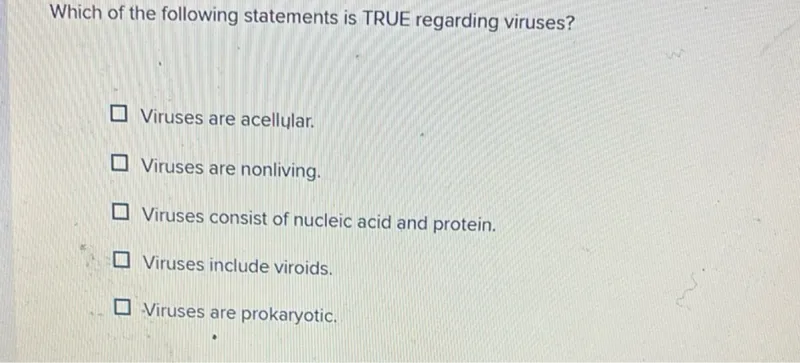Questions: Which of the following statements is TRUE regarding viruses? Viruses are acellular. Viruses are nonliving. Viruses consist of nucleic acid and protein. Viruses include viroids. Viruses are prokaryotic.

Transcript text: Which of the following statements is TRUE regarding viruses?
Viruses are acellular.
Viruses are nonliving.
Viruses consist of nucleic acid and protein.
Viruses include viroids.
Viruses are prokaryotic.





